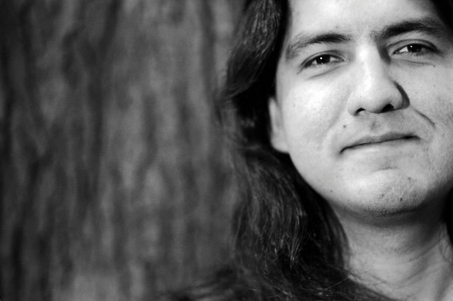The Yi-Fen Chou Affair
 If Sherman Alexie had remembered good advice from Niccolo Machiavelli’s The Prince when he was deliberating about what to include in The Best American Poetry 2015, there would be no discussion in American poetry circles of the Yi-Fen Chou Affair. Alexie would have used a universal truth, one that is useful in political practice and literary negotiations and especially powerful in dealing with the regressive conditions of life in the United States in 2015. In Section XV of The Prince, Machiavelli proclaimed that “any man who tries to be good all the time is bound to come to ruin among the great number who are not good. Hence a prince who wants to keep his authority must learn how not to be good, and use that knowledge, or refrain from using it, as necessity requires.” If Alexie had applied this advice, Kwame Dawes would not have castigated Yi-Fen Chou (a.k.a. Michael Derrick Hudson) in a Prairie Schooner blog for using “identity theft” in order to get the poem “The Bees, the Flowers, Jesus, Ancient Tigers, Poseidon, Adam and Eve“published. As matters stand, Hudson can smirk as many of his peers burn with anger and blame Alexie, and by association Dawes, for exposing how aesthetic judgments are ultimately political ones.
If Sherman Alexie had remembered good advice from Niccolo Machiavelli’s The Prince when he was deliberating about what to include in The Best American Poetry 2015, there would be no discussion in American poetry circles of the Yi-Fen Chou Affair. Alexie would have used a universal truth, one that is useful in political practice and literary negotiations and especially powerful in dealing with the regressive conditions of life in the United States in 2015. In Section XV of The Prince, Machiavelli proclaimed that “any man who tries to be good all the time is bound to come to ruin among the great number who are not good. Hence a prince who wants to keep his authority must learn how not to be good, and use that knowledge, or refrain from using it, as necessity requires.” If Alexie had applied this advice, Kwame Dawes would not have castigated Yi-Fen Chou (a.k.a. Michael Derrick Hudson) in a Prairie Schooner blog for using “identity theft” in order to get the poem “The Bees, the Flowers, Jesus, Ancient Tigers, Poseidon, Adam and Eve“published. As matters stand, Hudson can smirk as many of his peers burn with anger and blame Alexie, and by association Dawes, for exposing how aesthetic judgments are ultimately political ones.
To be sure, the progress of terrorism throughout the world and the ascent of systemic racism in the United States have more physical and moral gravity than the hoax of the Yi-Fen Chou Affair. The Affair is a squall not a hurricane. But for those of us who have the luxury of talking about ethnic American literature and of writing either inside or outside a range of literary traditions, the hoax is more than a small pest to be sprayed or swatted with eco-correct instruments.
I recall how Alan Sokal’s 1996 publication of a nonsense article on “a transformative hermeneutics of quantum gravity” in Social Text fed popular disdain for the humanities and theory-enthralled cultural studies. In the context of that memory, it angers me that Hudson might believe it is o.k. to steal the identity of a Chinese American and to exploit good faith efforts to embrace diversity and fairness in literary commerce. Alexie’s confessional essay “Sherman Alexie Speaks Out on the Best of American Poetry 2015″ is a rich illustration of the mind in pain. I am not angry with him for bending over backwards to be good. Perhaps in an imagined future I shall thank him for intensifying my anger about the assumption among some (let me stress some and not all) self-fashioned white males and females that God blesses their entitlement to do and say whatever they please and not be held accountable. Alexie urges us to “continue to debate The Yi-Fen Chou Problem.” Yes, Mr. Alexie I shall do so, remembering as Peter Johnson suggested that “heterotopias glitter and clash in their incongruous variety, illuminating a passage for our imagination.” [see “Unravelling Foucault’s ‘different spaces‘,” History of the Human Sciences 19.4 (2006): 75-90]
Jerry W. Ward, Jr. September 12, 2015
*Editor’s note: Today, Monday, September 14th, we will all have the opportunity to talk with Kwame Dawes. The webinar is part of a series of live, online discussions with a prominent group of intergenerational award winning poets to be held Fall 2015. The general public and students of all levels are invited to attend.
Please share this invitation widely with your colleagues and students. The webinar is FREE and all are invited to attend.
Times are listed below.
2:00 PM EDT / 1:00 PM CDT / 12:00 PM MDT / 11:00 AM PDT
This webinar will be moderated by Maryemma Graham
Follow the link below to register:
[link]
See the following link for more about upcoming webinars:
[link]